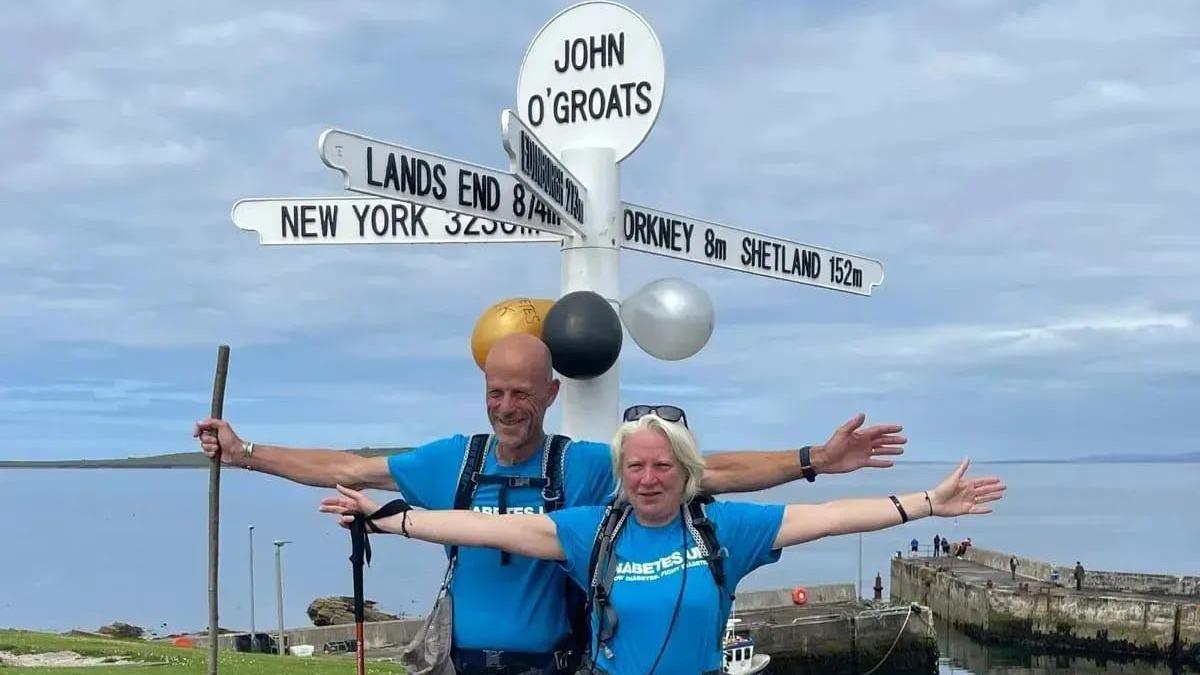'I was asked why my children have type 1 diabetes'
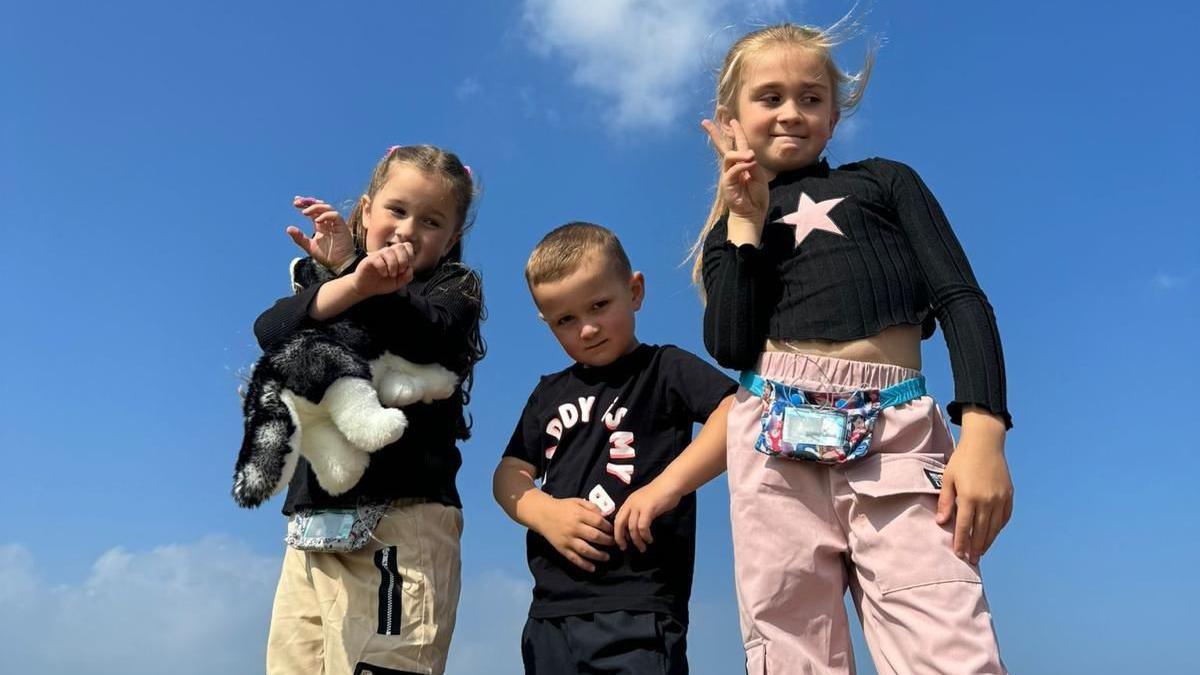
Siblings Paisley, Louis and Evie all have type 1 diabetes
- Published
"What have you been feeding your kids to give them type 1 diabetes?"
Leigh, a mum-of-three from Liverpool, said that was just one of the many ignorant questions people had asked her.
The 33-year-old said Evie, Paisley and Louis - aged eight, six and five respectively - were diabetic due to an unpreventable problem with their immune systems.
She added: "Sometimes you will have people saying 'I can't believe your kids are diabetic at this age'.
"It's really insulting as it's nothing to do with what they've eaten or their diet and lifestyle - it's an autoimmune disease."
Three siblings with type 1 diabetes share their daily routine
Leigh is sharing her family's experiences as part of a six-part BBC North West Tonight series about invisible disabilities and illnesses.
She wants to raise society's awareness of people living with conditions which are not immediately obvious.
Type 1 diabetics cannot make a hormone called insulin., external
It is different from type 2 diabetes, which is more common in older people and those who are obese.
Leigh has set up TikTok and Instagram accounts - Diabetic Diamond - to share her family's experiences.
She said she was "very proud" of her children and how they have adapted to the additional challenges they face.
"They just take it in their stride," she explained.
"They love to raise awareness and always just get on with it and support each other."
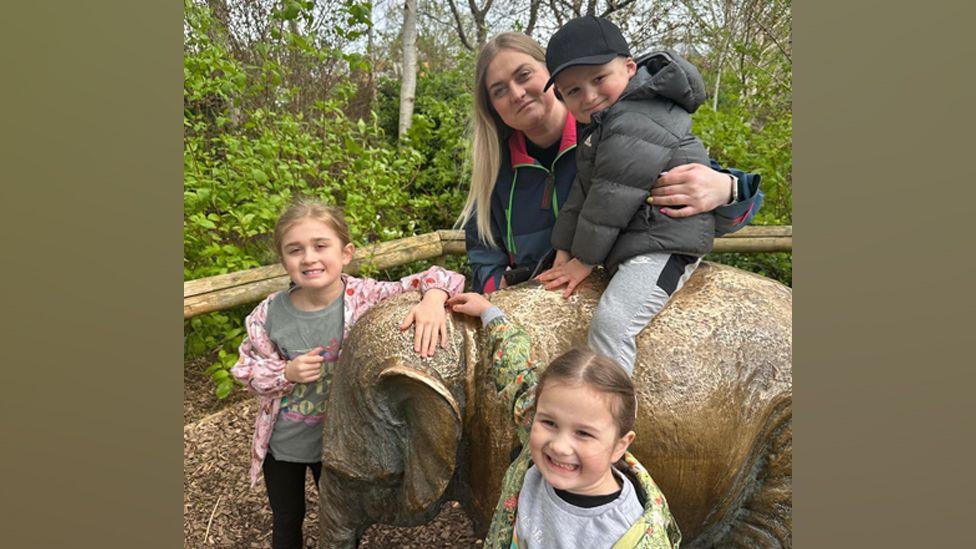
The family have been documenting their experiences online
Leigh said she felt "constantly on edge" due to the constant vigilance required to manage her children's diabetes.
They all have monitors which provide an alert if their glucose levels are outside of the normal range.
"Even when the alarms aren't going off, I wake up in a panic just in case I've missed an alarm," she said.
"But they do go off quite often.
"I don't think there's been a night in a long time when I've not needed to get up and give apple juice or an insulin correction."
Leigh said she had been left with no choice but to give up work, just to keep on top of the daily challenge.
"There's a lot that I've got to think about," she said.
"Even if the kids' levels are fine there's then the preparation.
"You can't just walk out of the door."
The family's story features in a special six-part BBC North West Tonight series about invisible disabilities and conditions. You can watch it on BBC One in the Northwest of England and the Isle of Man from 18:30 BST on Tuesday 8 July. It will also be available on the BBC iPlayer.
Get in touch
Tell us which stories we should cover on Merseyside
Listen to the best of BBC Radio Merseyside on Sounds and follow BBC Merseyside on Facebook, external, X, external, and Instagram, external. You can also send story ideas via Whatsapp to 0808 100 2230.
- Published10 January
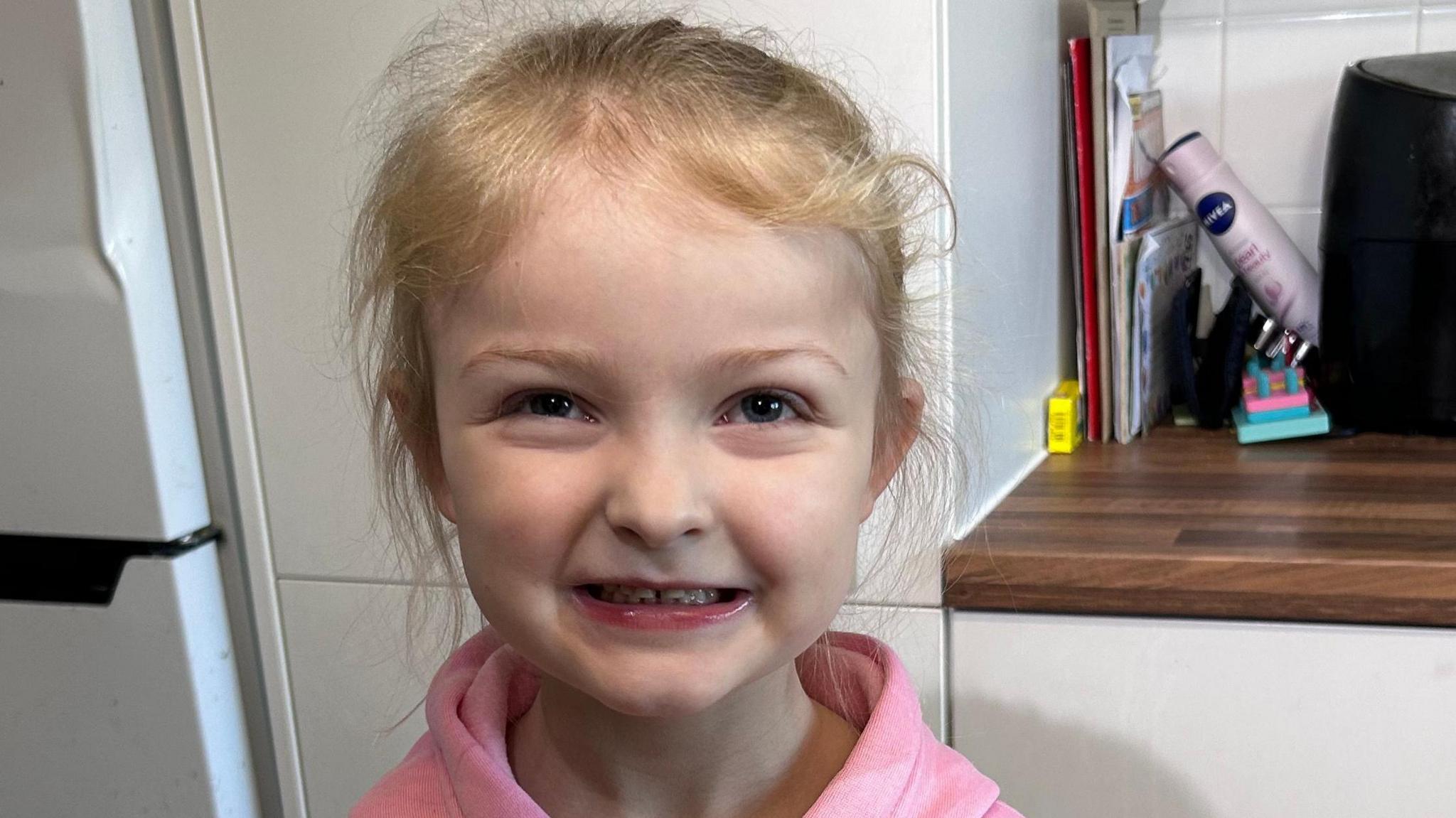
- Published17 December 2024
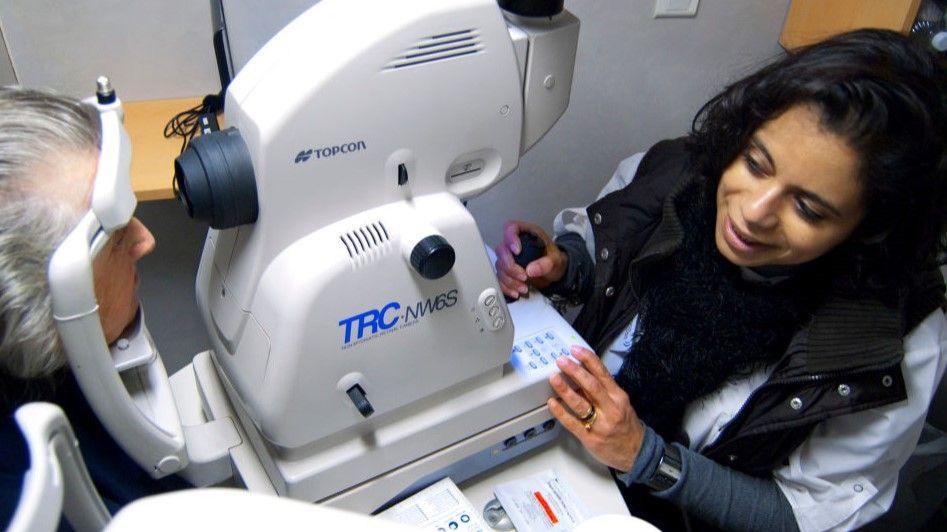
- Published28 July 2024
